What is DKA?
DKA, or Diabetic Ketoacidosis, is a dangerous condition where your blood glucose is too high (>240 mg/dL) and you have ketones present in your blood or urine.
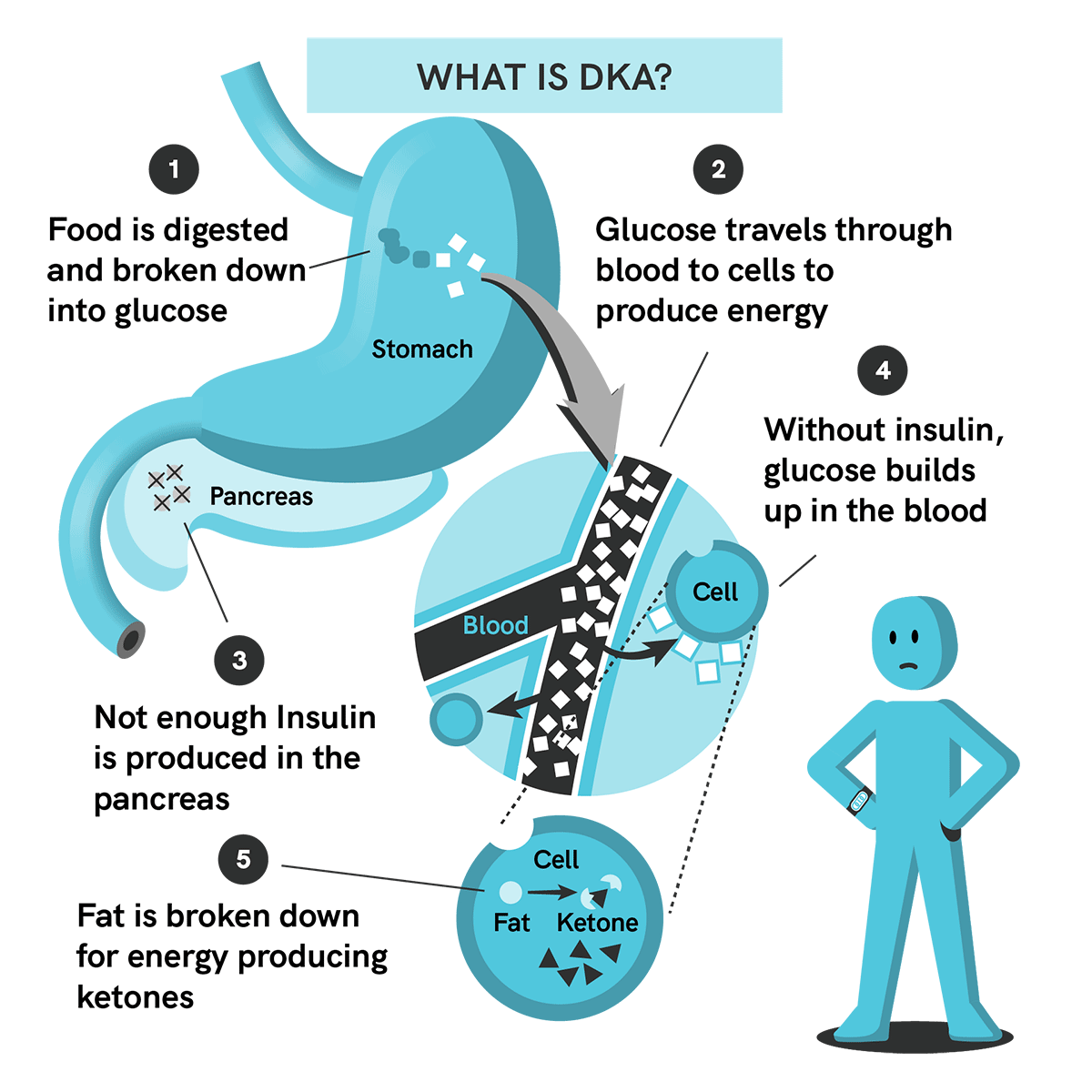
When the body does not have enough insulin, fats are broken down for energy which produces ketones. When there are too many ketones in the blood for too long, you may feel dangerous symptoms.
What are the symptoms of DKA?
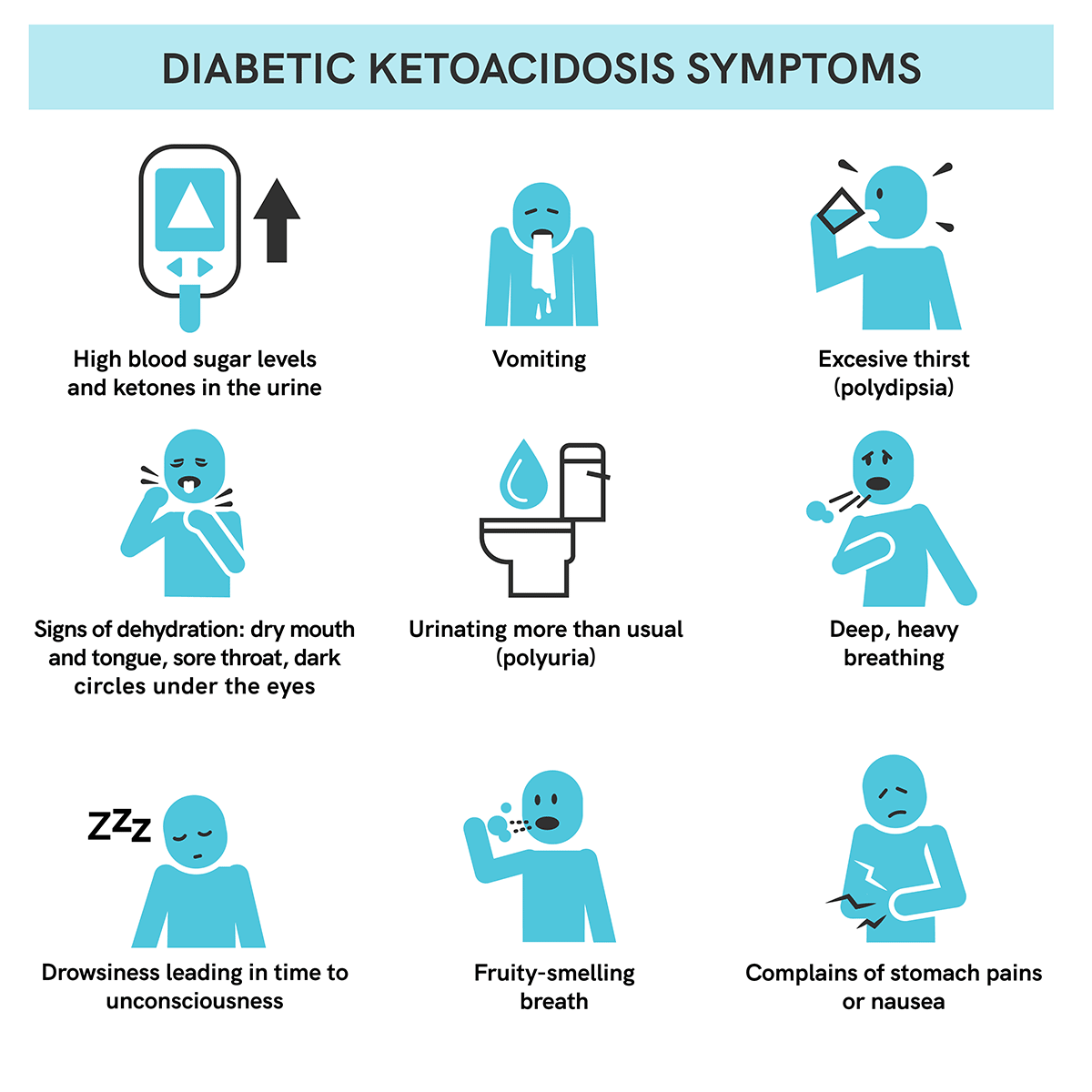
When Should I Check for Ketones?
You should check your ketone levels if you have DKA symptoms. You should also check when:
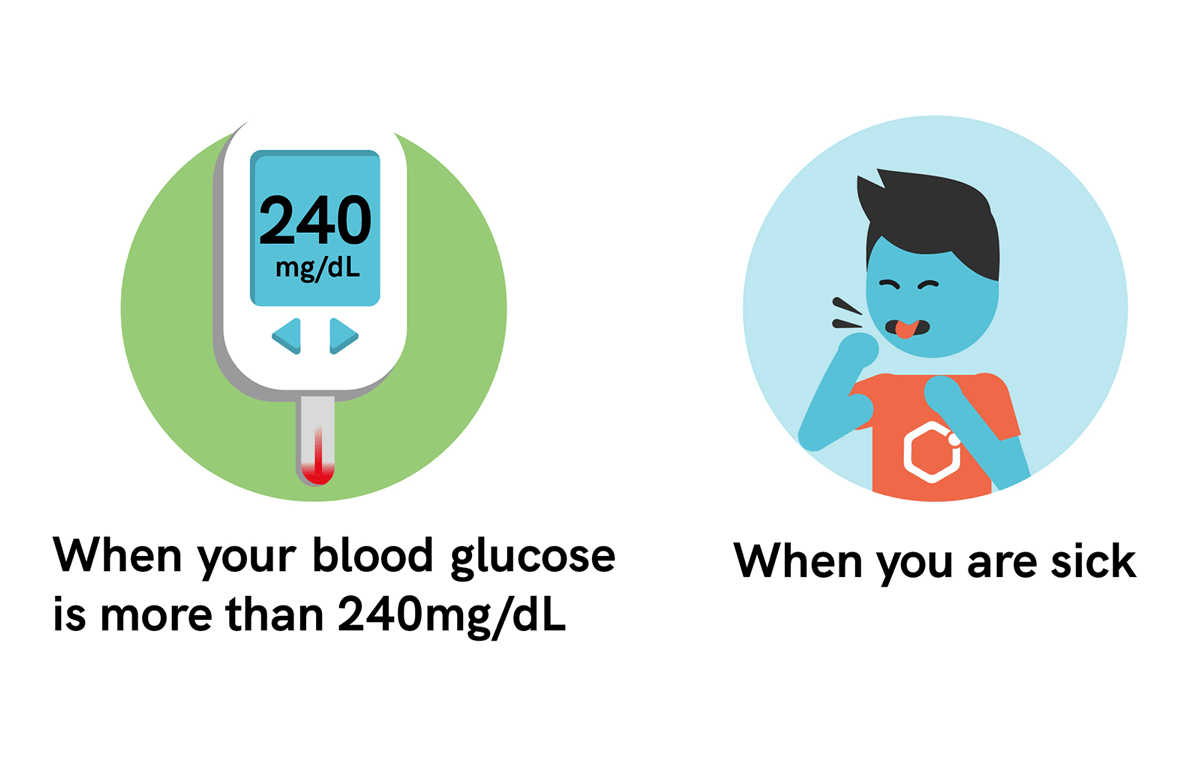
You should check your ketone levels every 2 to 4 hours when you are sick or have an infection.
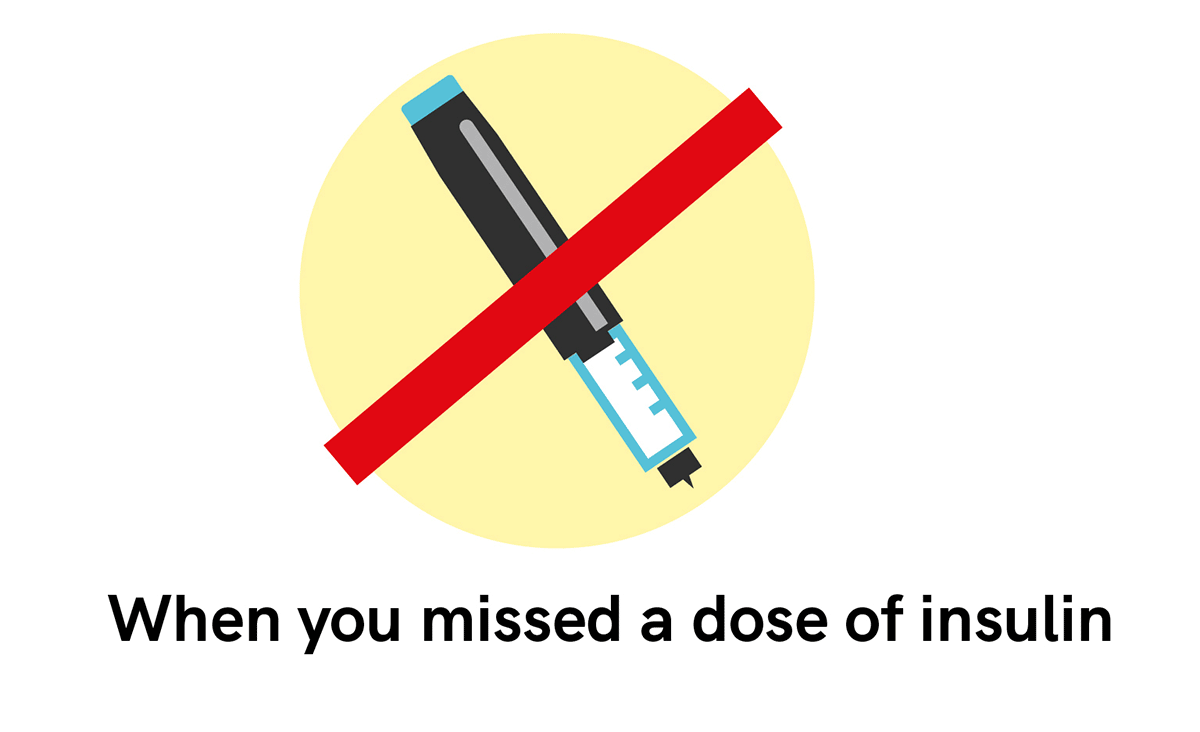
You should also check your levels if you have missed a dose of long-acting insulin.
How do I check my ketones?
Ketones can be measured in the blood or urine. Some BGMs also measure ketones using a different strip.

Ketone urine dipsticks can also be used to check your ketone levels.

How do I read ketone values?
Very small amounts of ketones in the blood or urine are normal. Larger amounts of ketones are dangerous.
Follow the instructions on the chart below once you have your values.
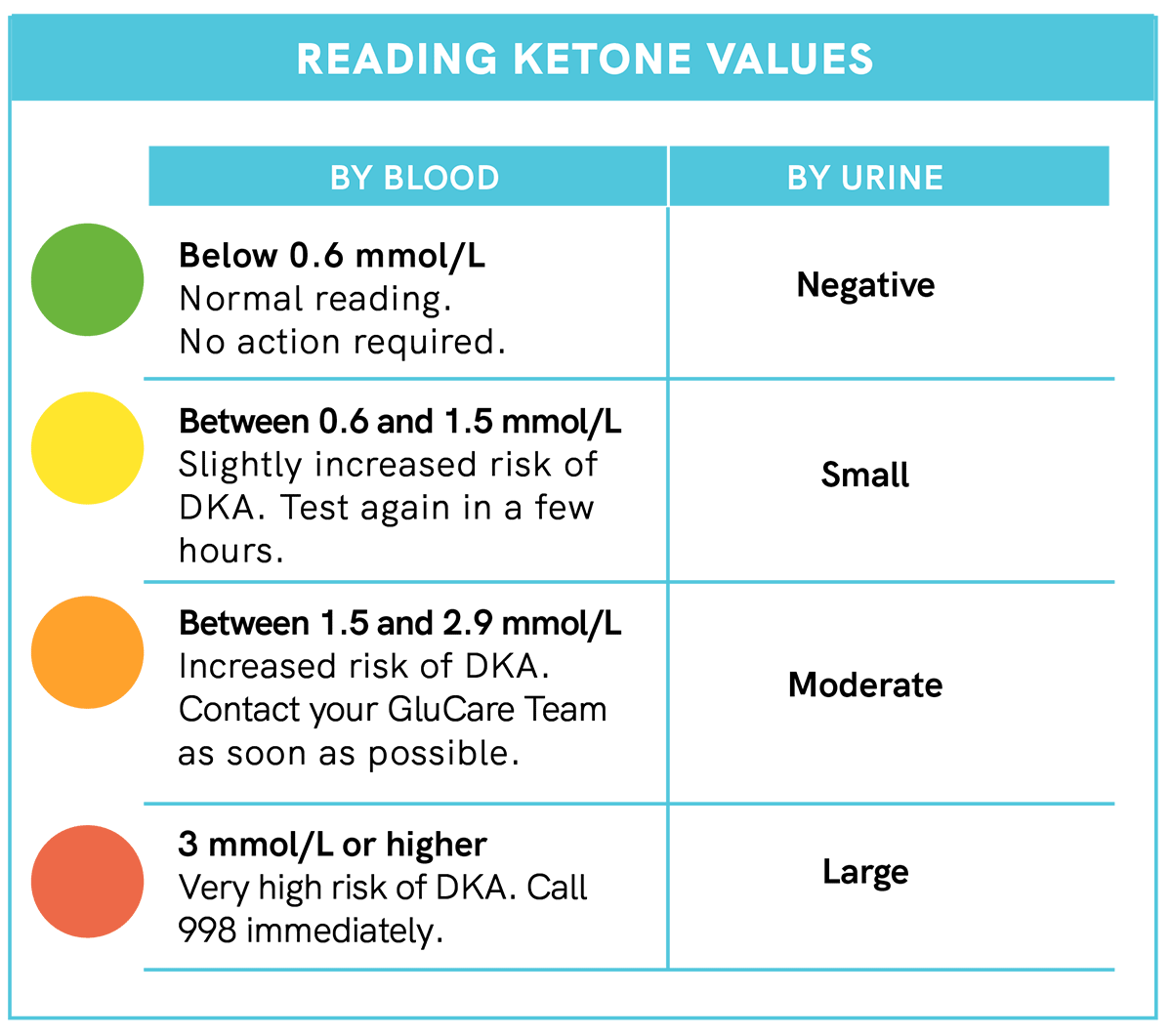
What if I have DKA?
DKA is a serious medical condition and needs immediate attention. If your blood ketones are greater than 1.5 mmol/L or your urine ketones are moderate to large contact your GluCare Care Team urgently. If they are not reached immediately call 998 for assistance.
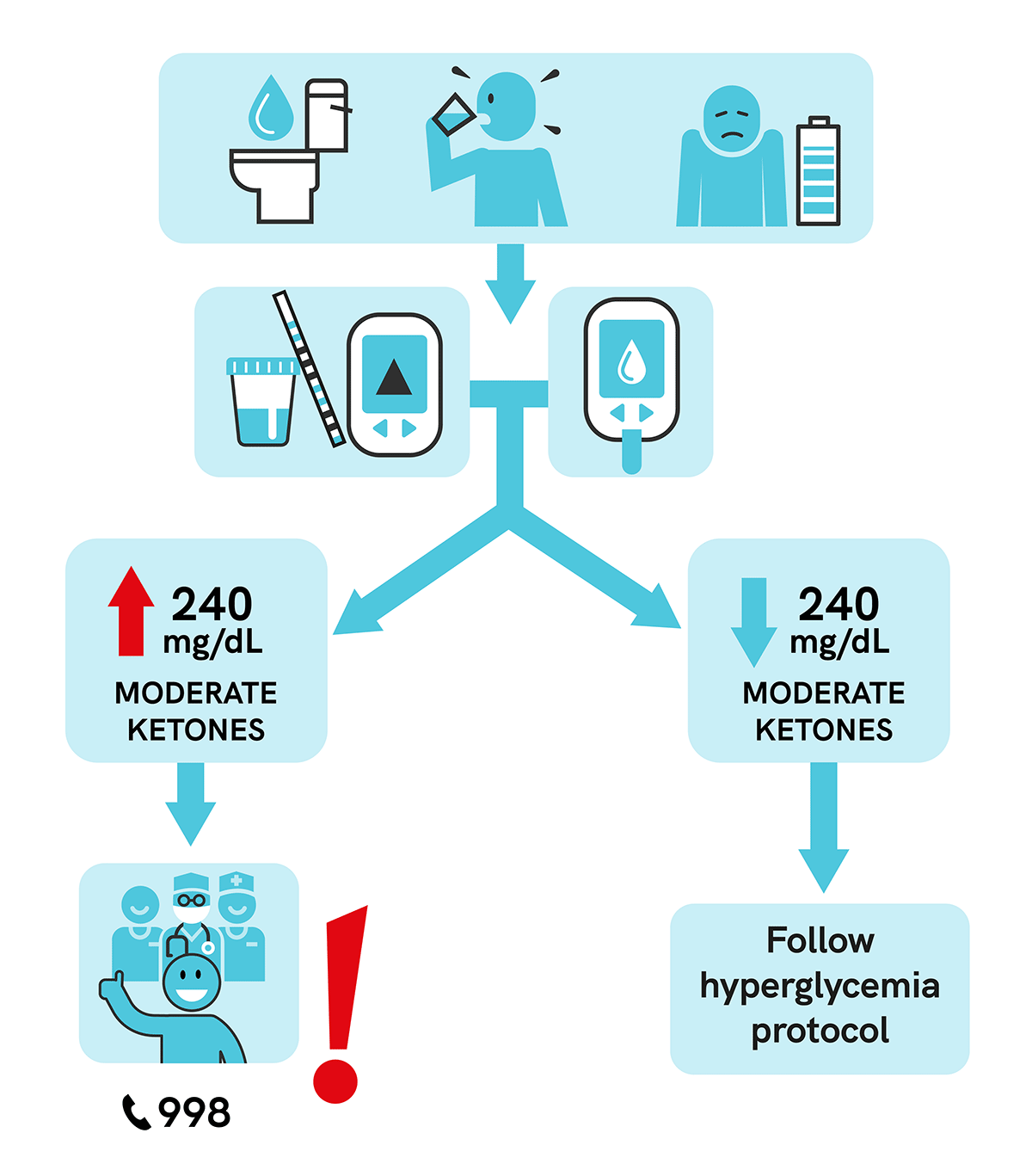
Left without treatment, DKA can be fatal.
Leave a Reply